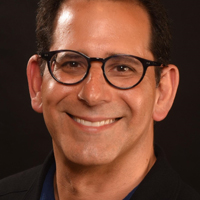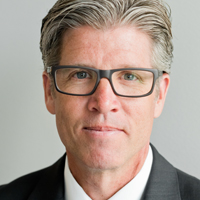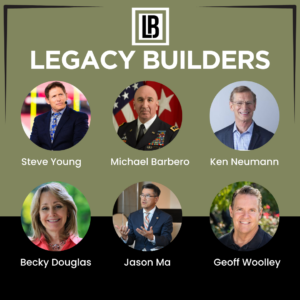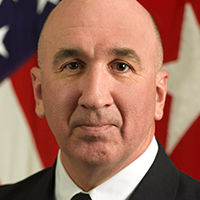Latest Trends in East and West Coast Family Offices

Latest Trends in East and West Coast Family Offices
Key Takeaways from this Video
• Luxury Investments such as cars and gems can be positioned in such a way that family offices are not required to pay sales tax upon purchasing the item. (2:01)
• A lot of the wealth creation in for family offices comes Real Estate and Tech companies. The key difference between West and East Coast family offices is, that family offices on the West Coast have more experience looking at Tech startups from a Venture Capital stand point. The West Coast also has more investments in Block Chain, Cryptocurrencies and AI than the East Coast does. (4:45)
• There’s a growing interest to invest capital gains into an opportunity zone. Doing so will enable family offices to defer paying the tax for 10 years and only have to pay 85% of the tax. There is also opportunities to pay no tax on gain from developing gentrified areas if they are held for 10 years. (8:27)
• The biggest issue that family offices have revolve around lifestyle. They should have to worry about taxes or keep up on the latest laws- it’s the CPA’s job to simplify their life. (10:47)
• A good CPA should do more than save you taxes. They should also bring relationship to the table and help you connect with others as well. (23:19)
Transcript:
Julio Gonzalez: You work with a lot of family offices throughout the country and help them preserve their wealth through your tax knowledge. Can you share a little bit about what you’re working with some of your clients?
Steve Singer: Yes there’s several things I wanted to share, the first being on alternative investments. I see a lot of venture capital and also these family offices that are investing in startup enterprises right now. Additionally I see a lot of the family offices especially- on the west coast investing in diamonds, art pieces and cars. That’s really exciting because those particular assets- even though the economy is going really well- are doing better than what the economy is doing.
Julio Gonzalez: Tell us a little bit about the luxury investments and how that’s working for the family offices.
Steve Singer: Well some of our families are investing in Ferraris, Bugattis and other exotic cars. What we’re doing is positioning them, so they don’t have to pay the sales tax or minimize it when they’re buying these cars. These cars really appreciate if you have a family office that understands how to invest in those kinds of types of assets.
Julio Gonzalez: These cars are really appreciating assets. That’s not something I would think about, I would think about it being a depreciating asset.
Steve Singer: Well if you’ve got Ferraris sitting in your back yard, then they actually have a pretty good value track record if you’re investing on them. We’re seeing a lot of those particular assets being acquired. Also, especially on terms of a very fancy diamonds and rubies where those are appreciating. One that I’m looking at right now is appreciating like 30 percent per year over year.
Julio Gonzalez: There’s lot of tax over in California, a lot of state tax and we continue to see people moving out of California because that tax- the high-high-high state tax. So what are you doing with the families over there?
Steve Singer: I’m advising them to get out of California. I’m advising them if they have enough net worth and they’re buying houses all around the United States or around the world, that they should really get out of California because the tax rate is just way too high and the new governor is also looking at increasing the tax rate for us and so I’m not really happy about that either.
Julio Gonzalez: So are the businesses moving out or you know obviously there’s a lot of tech a lot of startup there, is that changing?
Steve Singer: Yeah we’re seeing a lot of movement coming out of there, a lot of stuff going in Austin, actually even when I was in in in Switzerland I went to Zurich and visited ETH which is the MIT of Switzerland over there and you’re seeing Google coming in there and Facebook coming in there, they’re really creating a lot of different entrepreneurs over there because they’re gobbling up all the college students. So you’re seeing the technology work really going global right now.
Julio Gonzalez: When we invest out here on the east coast we’re looking at alternatives, but we tend to have a different type of alternative investment strategy. Over in California we see a lot of cannabis investments and things of that nature. What do you see in terms of the differences?
Steve Singer: I see the wealth creation in California is in real estate and also in technology. So most of the families over on west coast are very familiar with technology, they’re used to looking at those particular deals. When I go over to the east coast I see the family offices kind of grouped together in terms of investing and those family offices are trying to have a grip on determining whether or not the investments are really good or not. That’s a challenge for the east coast offices to look at where as opposed to the west coast offices, where a lot of the wealth creation from entrepreneurs or for venture capital, they’re used to looking at hundreds and hundreds of deals so what they’re looking at is a different aspect of it than is on the east coast. Also because the west coasts have a lot more investment here in block chain and cryptocurrencies and AI than I see that’s happening on east coast.
Karen Turk: Do you see a lot of people on the east coast now going into investing in cannabis?
Steve Singer: I see they’re kind of dipping their toe into cannabis. A lot of the Canadian companies are coming in and scooping up a lot of the cannabis production and so you see a movement on that side, because in the states at a federal level there’s an issue, a taxation issue and dealing with cash and dealing with banks so I think that you see that the Canadian companies have a better handle coming in, so they’re a little more hesitant to come into the cannabis arena. I do they are trying to synthesize it. When I was in Davos, they were talking about synthesizing cannabis and or making sure that when they’re growing it, it’s very high quality so it’s more still on the medical marijuana side. On the west coast you still have a lot of pot growing going on here in the different regions. I was talking to one of my friends and there’s like three or four different you know these “millennials” who are creating different food products made with cannabis so it’s an up-and-coming thing going on here.
Julio Gonzalez: Steve, you’re getting ready to do the taxes for all your clients and tax season is upon us. Could you give the audience some tips on what they should be thinking about to lower their tax liabilities as we move into tax season?
Steve Singer: I think the other issue is maybe not looking at 2018 but 2019. There’s a growing interest in these opportunities zones which people should be looking at because that is the ability for anybody who’s got any capital gains to go reinvest those gains into an opportunity zone to defer paying any of the tax for up to 10 years and then only paying 85% of that tax after the ten year period and then also if you do have certain developers who are really good developing a real estate and they’re in gentrified areas then they’re there’s also the ability to go in there and actually not pay any tax on any of the gain if you held it for ten years. So we’re seeing that as the other aspect is that the IRS right now issuing huge amounts of regulations and like last week they just came out with some other proposed regulations and just clarifying more on who is eligible for this 20% qualified business income deduction so I’ve been sitting there late at night reading all these particular regulations, how it applies to real estate and you know there are some issues in regards to real estate on how you can qualify that, what doesn’t qualify, so this just came out so we’re advising our clients on how to restructure certain of those particular aspects to get the 20% deduction on some of those things. The third is just as in general is how to estate plan for the stuff because of the higher is the exemption raise is that they should really take advantage of this while it’s still in play here either using gratz or a different type of a leveraged vehicle so to minimize the estate tax impact for their kids and other in their families.
Julio Gonzalez: So what else do they have to get ready to prepare to when they’re going to their accountant or CPA to you know best maximize the write-offs?
Steve Singer: I think for them it’s a question of lifestyle issues so what a question is that how much do they want to simplify their life or how much they want to complex their life. So to me whenever I have these discussions with our clients it always kind of revolve around lifestyle issues. And so from the lifestyle – standpoint that’s where we kind of come in there and coordinate all of the different trusted advisors for the client to maximize that so it’s not really impacting the client itself so they’re there to me more stress-free and that’s really to me our objective, to make their life easy and stress-free so they can live it the way they want to live it. Let us deal with all that other stuff okay because I mean who wants to really think about taxes seriously.
Julio Gonzalez: So what are the biggest changes to the tax code that you’re seeing for the families and how is that impacting them and how do they best mitigate these changes?
Steve Singer: I see that the changes in the itemized deductions that are happening a lot so you know the question is how to restructure some of these itemized deductions so they can take advantage of them as business expenses especially when they’re running their family offices, how to restructure some of those things. The other big thing is when you create losses because you sell your assets and you have these is these losses that have been accumulated over years and all of a sudden they get released. You may not be able to minimize those particular losses and so then of course is there’s a lot of planning that comes around there in terms of the timing on that and I’m also seeing a lot more of planning on some of these family offices where they haven’t been thinking about this on whether or not they qualify for any research and development credits or in fact if they have any real estate for doing any cost segregation surveys. So if we can do any cost segregation to really increase the amount of expenses they can do especially when you have these very favorable depreciation rates that we can take advantage of and they have other income they can offset and combine the whole thing together that they can really offset a lot of the tax liability at that particular time. We’re also looking at the differences between the lowering of the corporate tax rates and seeing whether or not we want to either incorporate into a 21 percent flat tax for a lot of these different corporations so there are a lot of different advantages of either starting advocacy corporation in having the ability to not pay taxes up to ten million dollars of whatever that gain is down the road if you hold it for five years so we’re looking at those particular issues too so for us we’re kind of busy and that’s not even talking about whatever the foreign element is with foreign taxes which has become a very hot and complex arena just because of the way the tax laws have really changed. So we’re seeing a lot of movement in a lot of different areas.
Steve Singer: With the companies there and they’re getting a lot lower tax rate on the corporate side or through the pass-through on the flow through companies, what are the companies doing with that tax benefit, what do you see happening there?
Steve Singer: For me on the private side I see that they’re reinvesting that a lot of the different cash for the families sometimes I see depending upon what their objectives are if their objective is to grow then they’re then they’re going and reap putting and putting it back to the company if they’re looking at doing exit strategies for the next four or five years then what they’re trying to do is they’re trying to increase the sales and the profitability so they can sell it, that’s what I’m kind of seeing in terms of those particular companies and their families if they have closely held businesses.
Julio Gonzalez: We’ve seen so much benefit and lower tax rates for the corporations.
Karen Turk: Yeah and this flat tax rate is really interesting too with this twenty one percent. I’m hoping Steve maybe can elaborate a little bit on that? The twenty one percent tax rate I see is very good because it makes a lot more competitive from a worldwide basis and so as a result when we’re looking at these twenty one percent tax rates most of the companies that I’m working at are profitable companies at their family-run. If I’m looking at the startup companies then the twenty one percent tax rates not going to kick in because you’ve got a lot of venture capital funding on that thing on those things so it’s not as important right now, it’s more important that we preserve a lot of the NOLs especially when you have changes in ownership. So for example I had a company they had a windfall about eighty million dollars of income a different source and so as a result I were able to go back and utilize these in NOL’s and save them probably about twenty five million dollars in federal taxes just from that particular standpoint alone. Additionally on these startup companies I think what the real big beneficial thing is for the R&D credits for the payroll tax. One of my companies that I think was their second or third round there they raised about sixty million dollars and they were able to save about two hundred twenty five thousand dollars just in that R&D payroll tax alone, so these are really cash flow issues for the client they’re able to go in reinvest those proceeds and developing more product, most of the companies out here that I’ve seen are in the AI arena and the blockchain and cryptocurrency. I see also on the nascent level that are kind of coming out which is more on the augmented reality and virtual reality. You see a lot of that stuff kind of coming into play right now, you’ll see a lot more coming in when the 5g networks start coming in because you have a lot more data that’s being able to go back and forth on some of that stuff.
Julio Gonzalez: I think the corporate tax rate going down to 21% like Steve said makes us so much more competitive as a country and it’s so great to see that tax reform is having a huge impact on jobs and job creation and companies bringing profits back into the country and thank goodness. And I wonder Karen what do you think that’ll be addressed tonight in the State of the Union?
Karen Turk: Yeah I mean I think these are the upside of having a good economy I’m looking forward to the State of the Union tonight I think it’s going to be really interesting what he’s going to talk about I think a lot of its going to be a border funding, but I also think we’re going to hear a little bit about this booming economy and that I really look forward to- saving money what who doesn’t like that.
Steve Singer: And jobs, I mean of the jobs report that came out this week and it was very positive where everyone is trying to say because the government shut down that would be a negative impact, but actually it’s very positive it was kind of coming out which was refreshing.
Julio Gonzalez: Steve how does someone know if they have a good CPA or not?
Steve Singer: I look at it and I kind of say a good CPA not only will save you taxes but it’s also what other relationships they bring to the table. So if all your CPA is doing is paying taxes for you and minimizing your tax effect I don’t really think that you have the best CPA, I think the best CPA for the family offices are ones that are able to provide you with other resources, for example I’m seeing a lot of family offices that want a lot more deal flow. So what I’ve done and what our company has done is going out to on these different universities that have entrepreneurs coming out and we’re able to present those particular companies to our family offices as long as they’re able to analyze whatever that deal is, you know it’s a good thing for their family office the other thing is being able to educate their children and also their grandchildren about what it means to be socially responsible, what social impact is, what it means to be financially secure, how to use wealth to the benefit of humanity, not just for the benefit of yourself, looking at bullying issues and how to avoid those, especially when you’re dealing with you know people who aren’t like-minded of you, how to respect other people, so that their civility in terms of whatever is going on in the family and how to really respect people in your family. So those are the kind of issues that you should be looking at your CPA and also that somebody who is going to keep you out of trouble, keep you out of jail right and also being able to introduce you to people who also are able to create more wealth for you and so that’s kind of what I look at when I look at somebody who I think is a good CPA.
Julio Gonzalez: So if we’re interviewing a CPA what are the questions our audience should be asking the CPA before they hire that accountant?
Steve Singer: I think that the issue is that the CPA is should be starting to ask you questions and you to listen to what you want. So once they understand what you want then the question is that, let’s talk about how to achieve your objectives. And again what I was looking at is what is the lifestyle that the person wants to have and how to impact that lifestyle to make it better for them and their family and so that’s what those things are that you should be listening to for a CPA, not just talking about well my firm did this my firm did this my firm did this. That’s something that they’re talking about what they did, they’re not listening to you and so the question is what can they do for you, what is it that you want, and so that’s what you should be looking for.
Julio Gonzalez: Do CPAs help with the investments from a tax standpoint?
Steve Singer: Yes, from this tax standpoint we can help. From our firm we don’t sell product so in effect is that we use other wealth advisors to help with those particular issues in terms of those but again to me it’s because we’re the trusted advisor we see a lot more than just one investment advisor so we’re trying to quarterback and giving most of the other investment advisors or other people on the team enough information to make sure that the clients objectives are being fulfilled.
Edited for Concision and Clarity
We hope you found this article about “Latest Trends in East and West Coast Family Offices” helpful. If you have questions or need expert tax or family office advice that’s refreshingly objective (we never sell investments), please contact us or visit our Family office page or our website at www.GROCO.com. Unfortunately, we no longer give advice to other tax professionals gratis.
To receive our free newsletter, contact us here.
Subscribe to our YouTube Channel for more updates.

Alan Olsen, is the Host of the American Dreams Show and the Managing Partner of GROCO.com. GROCO is a premier family office and tax advisory firm located in the San Francisco Bay area serving clients all over the world.
Alan L. Olsen, CPA, Wikipedia Bio

GROCO.com is a proud sponsor of The American Dreams Show.

The American Dreams show was the brainchild of Alan Olsen, CPA, MBA. It was originally created to fill a specific need; often inexperienced entrepreneurs lacked basic information about raising capital and how to successfully start a business.
Alan sincerely wanted to respond to the many requests from aspiring entrepreneurs asking for the information and introductions they needed. But he had to find a way to help in which his venture capital clients and friends would not mind.
The American Dreams show became the solution, first as a radio show and now with YouTube videos as well. Always respectful of interview guest’s time, he’s able to give access to individuals information and inspiration previously inaccessible to the first-time entrepreneurs who need it most.
They can listen to venture capitalists and successful business people explain first-hand, how they got to where they are, how to start a company, how to overcome challenges, how they see the future evolving, opportunities, work-life balance and so much more..
American Dreams discusses many topics from some of the world’s most successful individuals about their secrets to life’s success. Topics from guest have included:
Creating purpose in life / Building a foundation for their life / Solving problems / Finding fulfillment through philanthropy and service / Becoming self-reliant / Enhancing effective leadership / Balancing family and work…

MyPaths.com (Also sponsored by GROCO) provides free access to content and world-class entrepreneurs, influencers and thought leaders’ personal success stories. To help you find your path in life to true, sustainable success & happiness. It’s mission statement:
In an increasingly complex and difficult world, we hope to help you find your personal path in life and build a strong foundation by learning how others found success and happiness. True and sustainable success and happiness are different for each one of us but possible, often despite significant challenges.
Our mission at MyPaths.com is to provide resources and firsthand accounts of how others found their paths in life, so you can do the same.
Mastering Business Growth with Howard Shore
Howard Shore, Founder and CEO of Activate Group Inc. discusses managing, even mastering, business growth and the challenges growing quickly can present on Alan Olsen‘s American Dreams Show. Transcript: Alan Olsen Welcome to American Dreams. My guest today is Howard Shore. Howard, welcome to today’s show. Howard Shore Alan, thank you for having me. Alan…
Prosperity and Self-Reliance Zealot Steve Alder
From North America to Ghana, Africa, Steve Alder, President of Ensign Global College (www.ensign.edu.gh), sits down to discuss how a professor helps to build global prosperity and self-reliance on Alan Olsen‘s American Dreams Show. Transcript: Alan Olsen Welcome to American Dreams I’m visiting here today with Steve Alder. Steve, welcome to today’s program. Steve Alder Thank…
Steve Young on Building an Epic Family Legacy
Retired 49r Steve Young Discusses Building a Family Legacy at the Legacy Builders Event on May 15, 2024 As GROCO celebrates three decades of excellence in family office tax and advisory services, we have developed the Legacy Builders to stands as a testament to the firm’s enduring vision: to transform wealth into a powerful tool…




